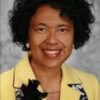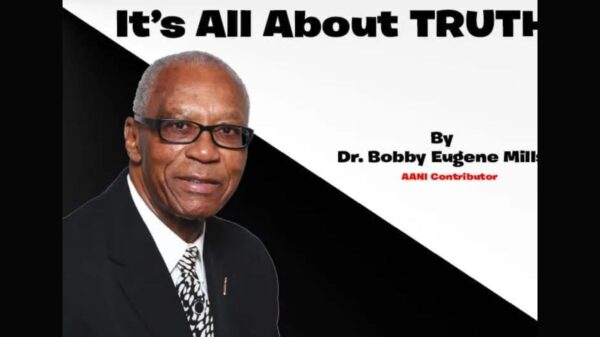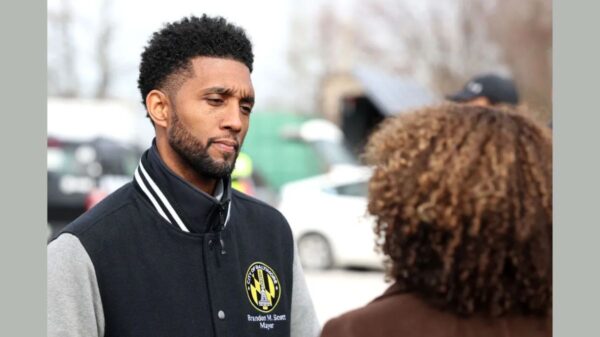By Dr. Calvin E. Moore, Jr.

Editor’s note: The following is the first in a series of columns devoted to early childhood education and its role, value and importance to young children, families and all communities.
Dr. Calvin E. Moore, Jr., CEO, Council for Professional Recognition
Every parent has certain preconceived ideas of how their child will fit into our complex world. The unexpected joy of parenthood is accepting that each child has unique abilities and challenges — some of which may be difficult to initially understand. I began my career as an early childhood educator and was privileged to teach children from all types of backgrounds and abilities. My professional training gave me the skills to develop personalized strategies for a child who was experiencing learning challenges.
Earning a Child Development Associate (CDA) credential, which is based on a core set of competency standards that guide early childhood professionals, really propelled my teaching practice. A key part of earning the CDA is understanding traditional educational models may not be enough to support early communicative development for children with disabilities. In my teaching, I also realized what the Frank Porter Graham Child Development Institute has reported: “Black families of children with disabilities face additional stress and difficulties because of their multiple marginalized statuses, particularly within the intersection between racism and ableism.”
The nonprofit I lead, the Council for Professional Recognition, emphasizes to our early childhood educators that they need to modify their approach to lesson plans and offer tools to better help all children with disabilities thrive. We highlight such insights in “Essentials for Working with Young Children,” the textbook for educators pursuing a CDA credential. Yet our responsibility to all parents and society at large means we must do more to share insights, especially with underserved and under-resourced communities. The following is some of our best thinking for families embracing the uniqueness of young children with special needs or accommodations. Much of the advice below can apply to all preschool children.
- Embrace Multimodal Communication: Children with disabilities may experience challenges in verbal communication, but they often excel in other modes of expression. Educators and families should encourage and support various forms of communication, such as sign language, pictures, or other augmentative and alternative communication devices. For instance, if a child finds it difficult to articulate words, they can use picture cards to express their needs, feelings, and ideas. We should emphasize that all forms of communication are valid and valued.
- Speak Simply and Clearly to Children: Slow the pace of your speech and repeat statements and questions as needed. Speak simply to children and give them one-step directions. For example, ask a child to “Please clean up your toys” (one step) instead of “Please clean up your toys when you’re done. Then go put on your shoes” (multiple steps).
- Promote Storytelling and Dramatic Play: We should engage the child in storytelling and dramatic play activities. Storytelling enhances language skills, imagination, and creativity. A good idea is to use props and costumes during dramatic plays to bring stories to life and encourage the child to participate actively. This approach can help build language and communication abilities in a fun and engaging manner.
- Encourage Peer Interaction: In both home and classroom settings, we should provide opportunities for children with disabilities to interact with their peers. Encouraging group activities that promote cooperative play and communication is a good step. These interactions can help improve social skills and language development as the child learns from and models their peers.
- Use Visual Aids and Schedules: Visual aids and schedules can provide structure and predictability for children with disabilities, promoting better understanding and participation. Visual timetables and daily schedules can help the child anticipate what comes next and reduce anxiety. Additionally, visual aids like flashcards with images and corresponding words can reinforce vocabulary and language comprehension.
- Create a Literacy-Rich Environment: Research shows that books have a significant impact on a child’s development, including their cognitive, spiritual, and linguistic skills, as well as their mental and emotional maturation. Both at home and in the early childhood classroom, immerse children in a literacy-rich environment. Surround them with age-appropriate books, brightly labeled objects, and educational materials. Designate a cozy reading corner with comfortable seating and a diverse selection of books that cater to different interests and abilities. Begin with simple, wordless, or photograph-based books. Also select books that appeal to the senses, such as texture or scratch-and-sniff books. Encourage children with fine motor challenges to look at books independently to gain practice holding books and turning the pages.
Most of all, early childhood educators understand (or should understand) the need to involve families in learning. Collaboration between educators and families is essential in supporting language and literacy development. Educators should share progress updates, provide strategies for at-home learning, and encourage families to engage in literacy activities together. This partnership ensures that the child receives consistent support, reinforcing the concepts taught in the early childhood classroom. From my classroom days, I know young children have so much joy and love to share with us. Creating a supportive and inclusive environment for young children with disabilities is vital. The early childhood classroom, along with a nurturing home setting, can serve as a powerful foundation for their future academic and social success.
Dr. Calvin E. Moore, Jr. leads the Council for Professional Recognition, which advances career pathways for early childhood educators through high-quality, competency-based credentialing. The Council recognizes and credentials professionals who work in all types of early care and education settings including Head Start, pre-k, infant-toddler, family childcare, and home visitor programs. As a nonprofit organization, the Council sets policies and procedures for assessment and credentialing. To date, over 1 million Child Development Associate (CDA) credentials have been issued around the world. http://www.cdacouncil.org.









You must be logged in to post a comment Login